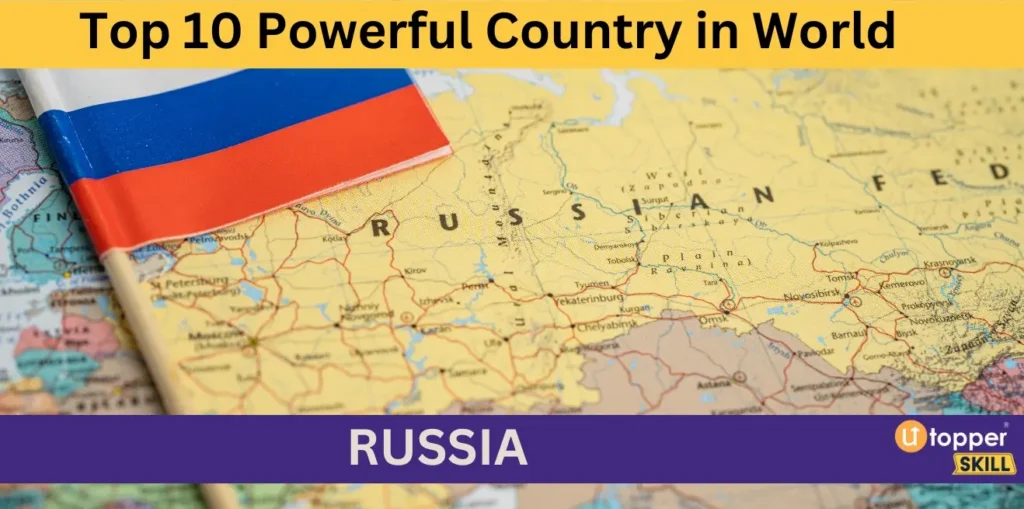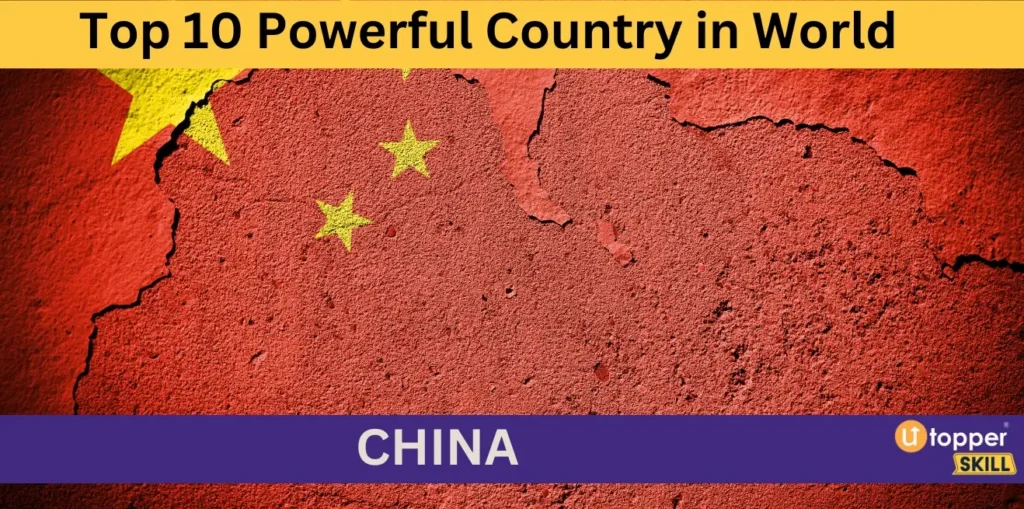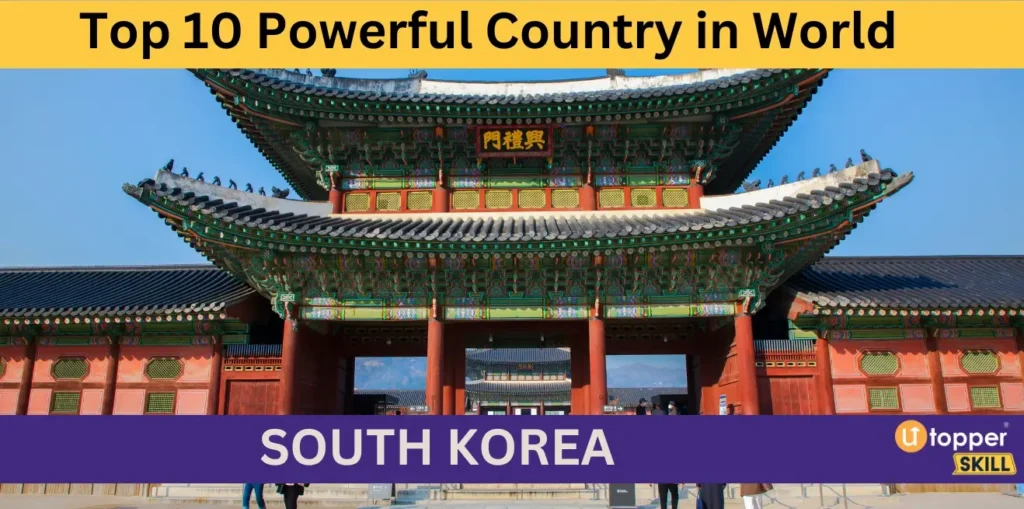[adinserter block=”3″]
Top 10 Powerful Countries in World
A powerful country is one that has significant influence and control in the international community. This can be measured in a number of ways, such as military strength, economic power, political influence, and cultural influence. To Come In the List of Top 10 Powerful Countries in world A powerful country may have a strong military with advanced technology, a robust economy, and a high standard of living. It may also have a strong diplomatic presence and be a leader in international organizations.

[adinserter block=”1″]
There is no universally agreed-upon method for determining the top 10 most powerful countries in the world. Different organizations and experts may use different criteria and methods to make this determination. However, some common factors that are typically considered when ranking countries by power include:
- Military strength: including the size, equipment, and readiness of a country’s armed forces.
- Economic power: including GDP, GDP per capita, and trade relations.
- Political influence: including the country’s role in international organizations and the strength of its diplomatic corps.
- Cultural influence: including the popularity of its music, movies, and fashion.
- Technological advancement, education and healthcare system and access to natural resources.
Below is the list of Top 10 Powerful Countries in world :
[adinserter block=”5″]
United States: The United States is the world’s most powerful country, with a formidable military, a strong economy, and a high standard of living.
[adinserter block=”6″]

The United States has significant power and influence on the global stage. Some of the main sources of its power include:
- Military: The U.S. has the largest and most advanced military in the world, with powerful air, land, and naval forces. It also has a large defense budget and an extensive network of military bases and alliances around the world.
- Economy: The U.S. has the largest economy in the world and is a major player in international trade and finance. Its currency, the U.S. dollar, is widely used as a global reserve currency.
- Diplomatic: The U.S. has a strong network of diplomatic relationships and is a member of many international organizations, such as the United Nations, World Trade Organization, and the G7.
- Culture: American culture, including its music, movies, and fast food, has a significant influence on the global culture.
- Technology: The U.S. is a leader in technology innovation and has many of the world’s largest technology companies.
[adinserter block=”7″]
Russia: With a strong military and a vast supply of natural resources, Russia is considered one of the most powerful countries in the world.

Russia is a major power on the global stage, with a number of sources of power and influence. Some of the main sources of Russia’s power include:
- Military: Russia has one of the largest and most advanced militaries in the world, with powerful air, land, and naval forces. It also has a large nuclear arsenal, which gives it a significant deterrent against potential aggressors.
- Energy: Russia is a major producer of oil and natural gas, and it has used its energy resources as a tool of influence on the international stage.
- Geopolitical position: Russia is the largest country in the world and has a strategic position spanning both Europe and Asia. It has land borders with many other countries and is a member of several international organizations, such as the United Nations and the G20.
- Diplomatic: Russia has a strong network of diplomatic relationships and is a member of many international organizations, such as the United Nations, the Shanghai Cooperation Organization, and the Collective Security Treaty Organization.
- Intelligence and cyber capabilities: Russia has a well-established and well-funded intelligence community, and its cyber capabilities have been known to be formidable.
China: With the world’s largest population and a rapidly growing economy, China is quickly becoming a major superpower.

China is a major power on the global stage, with a number of sources of power and influence. Some of the main sources of China’s power include:
[adinserter block=”8″]
- Economy: China is the second-largest economy in the world and has been growing rapidly in recent years. It is a major player in international trade and finance, and its currency, the Renminbi, is increasingly being used as a global reserve currency.
- Military: China has the largest standing military in the world and has been investing heavily in modernizing its armed forces. China has the largest navy in Asia and one of the largest air force in the world.
- Demographics: China has a large population, which provides it with a large pool of labor and consumers.
- Diplomatic: China has a strong network of diplomatic relationships, particularly in its region and developing countries, and is a member of many international organizations, such as the United Nations, the G20, and the World Trade Organization.
- Technology: China has been investing heavily in technology and innovation, and has many of the world’s largest technology companies, specifically in the field of Artificial Intelligence.
United Kingdom: The United Kingdom has a powerful economy and a strong military, and it is one of the world’s leading political and cultural powers.

[adinserter block=”1″]
The United Kingdom has a diverse mix of power sources, including nuclear, coal, gas, oil, and renewable energy sources such as wind, solar, and hydroelectric. The country has a goal to reduce its carbon emissions and increase the use of renewable energy sources. The National Grid manages the transmission of electricity across the country, and there are several large power companies that generate and distribute electricity to consumers.
France: France is a nuclear power with a strong economy and a powerful military, and it is one of the world’s leading cultural and diplomatic powers.

France is considered a powerful country on the international stage. It is a nuclear-armed country, a permanent member of the United Nations Security Council, and a leading member of the European Union. The country has a well-developed economy, a strong military, and a significant cultural influence around the world. It also has important alliances and partnerships, such as being a member of the G7, G20 and NATO, and it is also a founding member of the European Union.
[adinserter block=”4″]
Germany: Germany is the largest economy in Europe and has a powerful military. It is also known for its high standard of living and advanced technology.

Germany is considered a powerful country on the international stage. It has the largest economy in the European Union and is the fourth-largest in the world by GDP. It is also the second-most populous country in the EU and has a strong export-oriented economy. Germany has a well-funded and technologically advanced military, and it plays a central role in the politics and decision-making of the European Union. It also has important partnerships and alliances, such as being a member of the G7, G20, NATO and the UN. It’s considered as one of the most influential countries in the world.
Japan: Japan is an economic power with a highly developed technology sector and a skilled workforce. It also has a well-trained military and strong international alliances.

Japan is considered a powerful country on the international stage. Some key points that contribute to Japan’s power include:
- Strong economy: Japan has the third-largest economy in the world by GDP and is a major player in global trade and finance.
- Technological advancement: Japan is known for its advanced technology and innovation in areas such as electronics, automobiles, and robotics.
- Military capabilities: Japan has a well-funded and technologically advanced military, and it is one of the most powerful countries in the Asia-Pacific region.
- Cultural influence: Japan has a unique and influential culture, including its traditional art, fashion, and cuisine, which has a global appeal.
- Diplomatic relations: Japan has strong diplomatic relationships with other countries, including the United States, South Korea, and China, which enhances its power on the international stage.
- Global governance: Japan is a member of the G7, G20, UN and the OECD, which makes it one of the most influential countries in global governance.
[adinserter block=”2″]
India: India has the world’s second-largest population, and its economy is rapidly growing. It is also a nuclear power and has a large and well-trained military.

India is considered in the Top 10 powerful countries in world on the international stage. Some key points that contribute to India’s power include:
- Large population: India is the second-most populous country in the world, which gives it a large domestic market and a large pool of human resources.
- Growing economy: India has one of the fastest-growing major economies in the world and it is expected to be the world’s third-largest economy by 2030.
- Military Capabilities: India has one of the largest standing armies in the world and it is a nuclear-armed country.
- Strategic location: India is located at the crossroads of important trade routes and it is the only country that has land borders with both China and Pakistan.
- Diplomatic relations: India has strong diplomatic relationships with many countries, including the United States, Russia, and Japan, and it is a member of organizations such as the G20, BRICS, and the SCO.
- Global governance: India is the world’s largest democracy and the largest secular republic. It’s a founding member of the Non-Aligned Movement, and it plays an active role in the United Nations, particularly in peacekeeping operations.
You can Also Check the Article of USNews for Top 10 Powerful Countries in World based on Power.
South Korea: South Korea has a strong economy and a technologically advanced society. It also has a powerful military and a strategic location in East Asia.

South Korea is considered a powerful country on the international stage. Some key points that contribute to South Korea’s power include:
- Strong economy: South Korea has the 11th largest economy in the world by GDP and is a major player in the global economy, with a strong focus on technology and manufacturing.
- Technological advancements: South Korea is known for its advanced technology and innovation in areas such as electronics, automobiles, and robotics.
- Cultural influence: South Korea has a unique and influential culture, particularly in the areas of music, television dramas, and films, which has a global appeal.
- Diplomatic relations: South Korea has strong diplomatic relationships with other countries, including the United States, China, and Japan, which enhances its power on the international stage.
- Global governance: South Korea is a member of the G20, the OECD, and the UN, which makes it one of the most influential countries in global governance.
- Political stability: South Korea is a democratic country with a stable political environment and a low-corruption level, which makes it an attractive destination for foreign investment.
Canada: Canada is a developed country with a strong economy and a high standard of living. It also has a powerful military and is a member of numerous international organizations.

Canada is considered a powerful country on the international stage. Some key points that contribute to Canada power include:
- Strong economy: Canada has a well-developed economy and is one of the wealthiest countries in the world by GDP per capita. It is a major player in international trade and finance, and it has abundant natural resources, particularly in oil and timber.
- High standard of living: Canada is consistently ranked high on various measures of quality of life, including healthcare, education and personal safety.
- Multicultural society: Canada is a diverse and multicultural society, which is a source of strength and allows it to maintain strong diplomatic relations with many countries.
- Natural beauty: Canada is known for its natural beauty, including mountains, lakes, and forests, which attract many tourists each year.
- Global governance: Canada is a member of the G7, G20, NATO, and the UN, and it is a leading voice in international organizations such as the World Trade Organization and the World Health Organization.
- Political stability: Canada has a stable political environment and a strong tradition of democracy, which makes it an attractive destination for foreign investment.
[adinserter block=”1″]
Note: The ranking of countries in terms of power can vary depending on the criteria used, such as military strength, economic power, political influence, etc. This Developed Country list is based on a general assessment of overall power.
